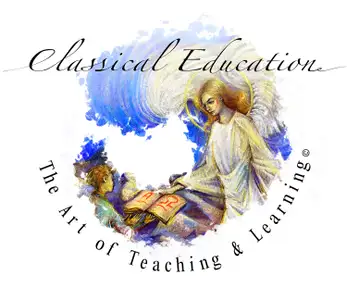Dr. Gary Hartenburg on Aristotelian Education: Discussions on Virtue and Leisure
What is meant by leisure as it applies to educating students in developing practical wisdom? Dr. Gary Hartenburg discusses the importance of time well spent which brings about something good. This is a most thoughtful discussion about a virtuous philosophy for educating students.
About our Guest
Gary Hartenburg holds a BA in Bible and theology from Moody Bible Institute, an MA in philosophy of religion and ethics from Biola University, and a PhD in philosophy from the University of California, Irvine. He is an associate professor or philosophy at Houston Baptist University, where he also serves as the director of the HBU Honors College, a liberal arts program for undergraduates to read, discuss, and write about great works of Western civilization. He resides with his family in the suburbs of Houston, Texas.
His most recent publication is Aristotle: Education for Virtue and Leisure published by Classical Adademic Press.
His most recent publication is Aristotle: Education for Virtue and Leisure published by Classical Adademic Press.
Show Notes
We invited Gary to discuss his new book. In keeping with one of our Classical Education podcast goals, "to inspire educators and parents to offer an education done well, influencing children to choose a life of virtue" Dr. Gary Hartenburg will inspire you! He explains that choices are not all equal in using time well and elaborates that to be ready and able to use time well, one must be “doing a lot of philosophy and music."
He also explains the Aristotelian concept of “Phronesis” in contrast to “Sophia”, which is described as “practical vs theoretical.” To accomplish wisdom and theological contemplation, we must design an education that enables students to use their leisure time well. Reaching the highest end is philosophy and contemplation of the best things, with attention equally on all of the virtues of character. Each of four Aristotelian virtues: courage, moderation, justice, and wisdom must be equally considered in a classical education. Students attain these virtue by "doing" and through the formation of good habits.
He also explains the Aristotelian concept of “Phronesis” in contrast to “Sophia”, which is described as “practical vs theoretical.” To accomplish wisdom and theological contemplation, we must design an education that enables students to use their leisure time well. Reaching the highest end is philosophy and contemplation of the best things, with attention equally on all of the virtues of character. Each of four Aristotelian virtues: courage, moderation, justice, and wisdom must be equally considered in a classical education. Students attain these virtue by "doing" and through the formation of good habits.
Some topics in this episode include:
- How does leisure, as described by Aristotle, influence virtue?
- What is it to be happy and spend leisure time well?
- Will you explain phronesis and how it undergirds an Aristotelian Education?
- What would Aristotle say if he could speak through teachers to students?
- What do you think Aristotle would say about a common current approach to leisure and what would he say about the way we approach ethics in our schools?
Books & Titles Mentioned In This Episode
Nichomachean Ethics by Aristotle
The Republic by Plato
_________________________________
_________________________________
Credits:
Sound Engineer: Andrew Helsel
Logo Art: Anastasiya CF
Music: Used with permission. cellists: Sara Sant' Ambrogio and Lexine Feng; pianist: Alyona Waldo
© 2022 Beautiful Teaching. All Rights Reserved
★ Support this podcast ★

